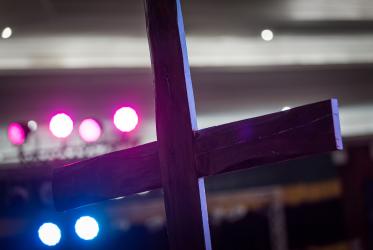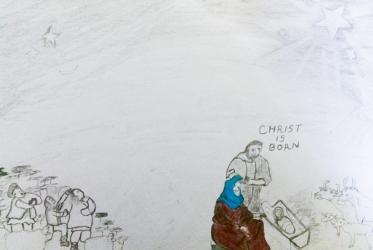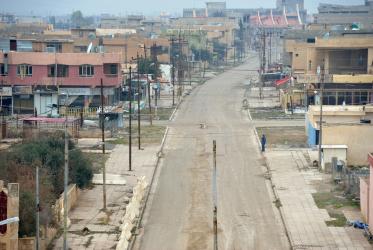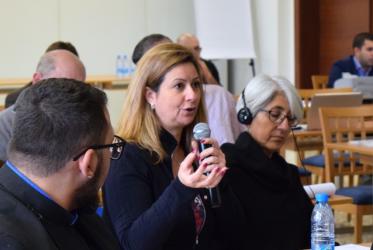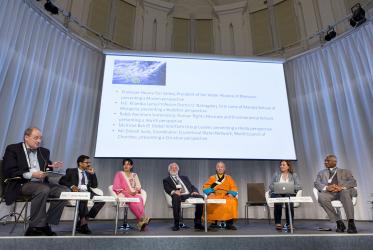Displaying 121 - 140 of 224
Rebecca Dali: My faith in God motivates me every second
24 August 2017
G20 summit: call to pray for peace in Hamburg
07 July 2017
In Lebanon, refugees face hardship - but find hope
16 March 2017
Churches’ diaconal action in the Middle East analyzed
01 December 2016
South Sudan: role of civil society vital in seeking peace
04 October 2016
South Sudan Council of Churches issues message to UN delegation
07 September 2016
